
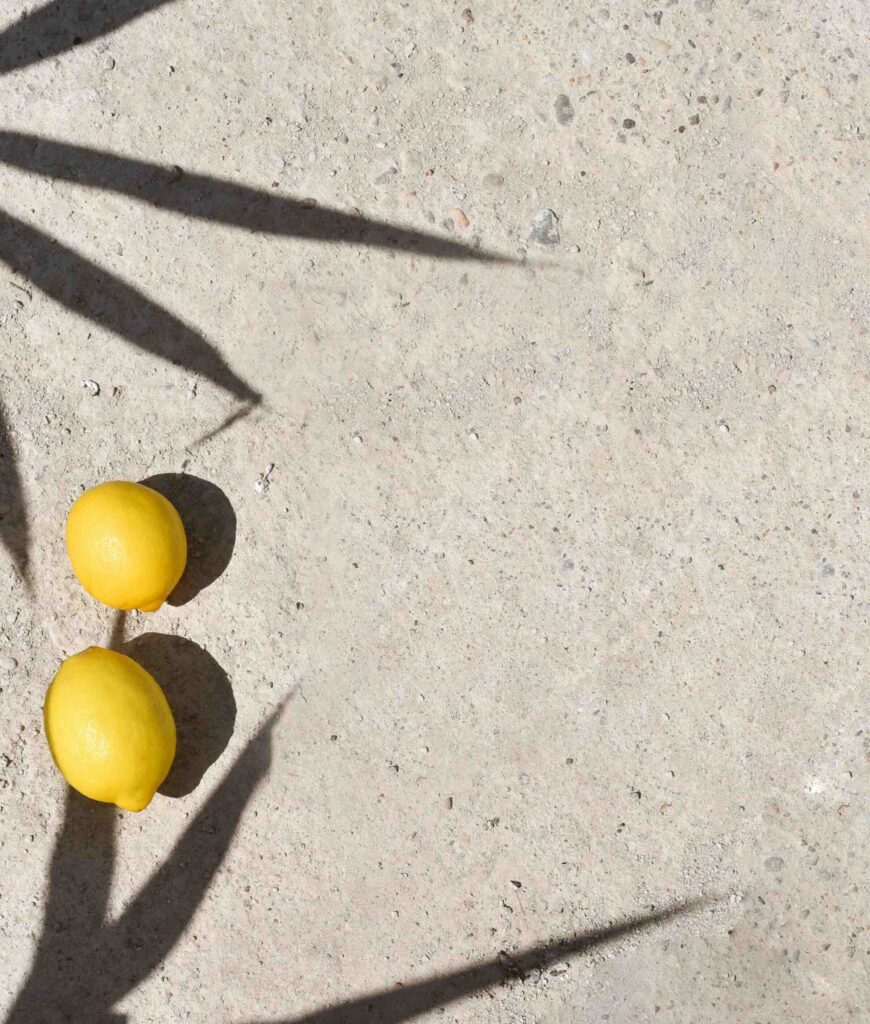
Dealing with pimples in intimate areas can be uncomfortable and sometimes embarrassing, but it’s a common issue that many women face. Often attributed to blocked hair follicles or oil glands, pimples on private parts can also be caused by hormonal changes or poor hygiene. Just like pimples on other parts of the body, there are various home remedies that can help manage and reduce these breakouts.
Maintaining good hygiene is key to preventing and treating vaginal pimples. Gentle cleansing and wearing breathable clothing can significantly reduce the chances of pimples occurring. For those already present, warm compresses and tea tree oil are commonly recommended for their antiseptic properties. It’s important to remember that while home remedies can be effective for treating uncomplicated pimples, persistent or painful pimples should be evaluated by a healthcare professional.
Key Takeaways
- Pimples on private parts are treatable with good hygiene practices.
- Home remedies like warm compresses can aid in treatment.
- Seek medical advice for persistent or painful pimples.
Understanding Vaginal Pimples
Vaginal pimples are a common concern that can arise from a variety of factors. Knowing the causes and recognising the symptoms can help you manage and treat these often-uncomfortable bumps.
Causes and Symptoms
Causes: Your vaginal area might develop pimples due to clogged pores, similar to acne on other parts of your body. Tight clothing can contribute to this, as it may trap sweat and bacteria against your skin. Hormonal fluctuations, particularly those linked with hormonal imbalance, can also trigger outbreaks. During activities like shaving, you could irritate or injure hair follicles, leading to folliculitis or ingrown hairs that resemble pimples.
- Hormonal Fluctuations: Often related to the menstrual cycle or hormonal therapies.
- Tight Clothing: Causes friction and sweat build-up, leading to irritation.
- Clogged Pores: Result from oil, dead skin, or product build-up in the skin’s pores.
- Hair Removal: Shaving or waxing can cause irritation leading to pimples.
Symptoms: The most notable symptom is a bump on the vaginal area, which may be red, swollen, and tender to the touch. They can be filled with pus, resembling an acne pimple. In some cases, there might be multiple bumps clustered together.
Comparing Acne and Other Skin Conditions
While vaginal pimples can appear similar to acne on your face, it’s important to differentiate between them and other skin conditions. For instance, cysts can form beneath the skin, feeling like large lumps, whereas folliculitis and ingrown hairs are typically at the level of the skin. Also, pimples due to acne are connected to the sebaceous glands, which are less common in the vaginal area.
- Acne: Related to the sebaceous glands; likely to occur on areas of the skin with higher oil production.
- Folliculitis: Appears as small, red bumps around hair follicles, often with a pus head.
- Cysts: Larger, fluid-filled lumps beneath the skin’s surface, which may require medical treatment.
- Ingrown Hairs: Hairs that have curled and grown back into the skin, causing a pimple-like bump.
Effective Home Remedies
When you’re experiencing pimples on your private parts, it’s important to proceed with gentle and effective solutions. You can consider a variety of home remedies and over-the-counter treatments that can be safe and beneficial for this sensitive issue.
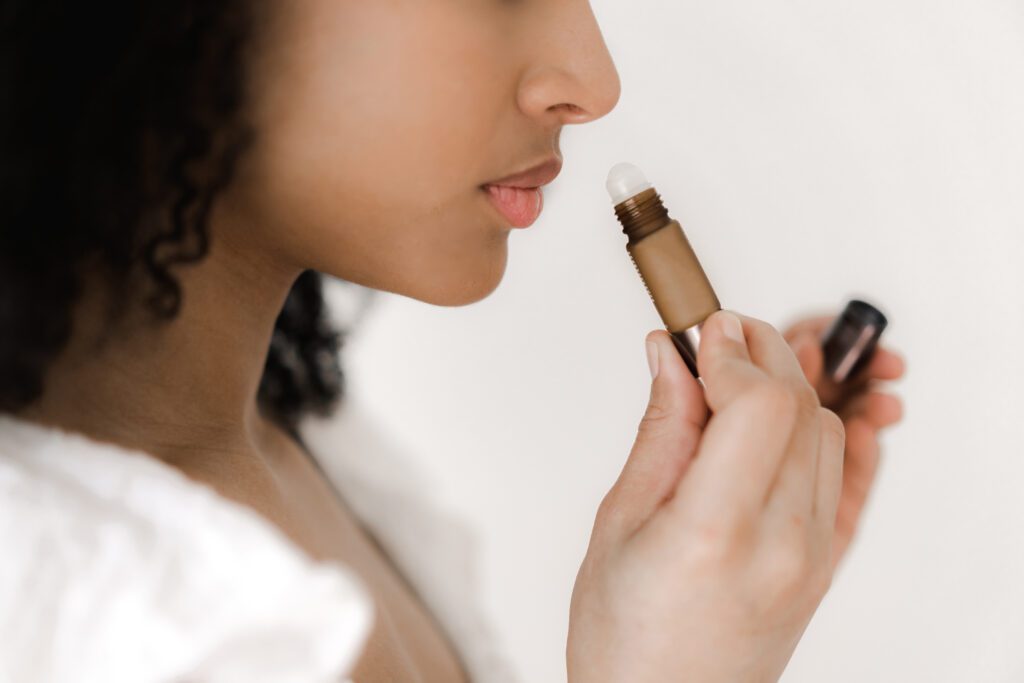
Natural Solutions
Tea Tree Oil: This natural antiseptic can help reduce inflammation and fight bacteria. A diluted solution of tea tree oil applied to the affected area may help clear up pimples. Remember to never apply undiluted tea tree oil directly to your skin, as it can be harsh, especially on sensitive areas.
Aloe Vera: Known for its soothing and healing properties, aloe vera can be applied directly to the irritated skin. Its anti-inflammatory benefits may calm redness and swelling associated with pimples.
- Compresses: Warm compresses can help to soothe irritation and may assist in reducing the size of the pimples. Just soak a clean cloth in warm water, wring it out, and apply it gently to the affected area for a few minutes.
Over-The-Counter Treatments
Topical Medications: Look for creams or gels that contain benzoyl peroxide or salicylic acid. These can help to dry out pimples and prevent future breakouts. Start with a low concentration to see how your skin responds.
- Antibiotics: If your pimples are particularly troublesome or persistent, you might need a prescription antibiotic cream. It’s best to speak with your GP or a pharmacist for advice specific to your situation.
Be mindful when trying new remedies, and discontinue use immediately if you experience any adverse reactions. If in doubt, consult with a healthcare professional for personalised guidance.
Preventive Measures and Hygiene
To avoid the discomfort of pimples on your private parts, certain preventive measures centred around your choice of clothing and personal hygiene practices can be incredibly effective.
Clothing Choices
Opt for cotton underwear which allows your skin to breathe and reduces moisture build-up, creating a less favourable environment for pimples to develop. Steer clear of tight-fitting clothes as they can cause friction and irritation in your sensitive areas, potentially leading to breakouts.
Personal Hygiene Practices
Maintain a regular cleaning routine, preferably with water and mild, unscented soap. Be mindful that products like bubble baths or harsh soaps can irritate your skin, so it’s best to avoid them. After sweating or exercising, changing your clothing and showering can help in keeping your skin clean and pimple-free. Remember, gentle drying after washing is just as important as the washing itself to prevent chafing.

When to See a Doctor
If you’re managing pimples on your private parts at home but notice troubling symptoms, it’s important to reach out to a healthcare provider. Understanding when self-care isn’t enough and professional medical advice is necessary can safeguard your health and provide peace of mind.
Recognising Complications
It’s vital that you keep an eye out for signs that suggest your condition may require medical attention. Signs that warrant a visit to a dermatologist or gynaecologist include:
- Increased pain or swelling around the pimples
- Pimples that recur frequently or won’t heal
- Any pimple that bleeds or discharges pus
- Signs of infection like fever or chills
If you’re sexually active, it’s also crucial to consider that what you’re experiencing might not be acne but could be related to sexually transmitted diseases (STDs). Symptoms such as sores, unusual discharge, or itchy sensations often require a professional diagnosis and treatment.
Professional Treatment Options
Consulting with a healthcare provider like a dermatologist or gynaecologist can open doors to various treatment options that are more effective for your specific case. They may suggest treatments such as:
- Prescription medications: Antibiotics or topical treatments that target bacteria and reduce inflammation.
- STD Testing and Treatment: If an STD is a concern, prompt testing and appropriate treatment are key to managing your sexual health.
When home remedies don’t lead to improvement or you’re simply unsure, remember that seeking professional advice is a proactive step towards protecting your wellbeing. Your healthcare provider can offer tailored advice and treatment plans to address the issue effectively.
Understanding Infections and STIs
When you notice unusual bumps or pimples in your private parts, it’s critical to determine whether they’re signs of an infection or a sexually transmitted infection (STI). Knowledge of these conditions is key to seeking appropriate treatment and managing your health.
Recognising Genital Warts and Herpes
Genital warts are caused by certain strains of the human papillomavirus (HPV) and appear as small, flesh-coloured bumps. They may feel rough to the touch and tend to cluster. Genital herpes, on the other hand, is characterised by painful blisters or open sores in the genital area. It’s important to note that herpes can lay dormant, so even if you can’t see lesions, the virus might still be present.
- Genital Warts: Small, flesh-coloured lumps, might be itchy but not generally painful.
- Genital Herpes Lesions: Painful blisters or sores, preceded by itching or tingling.
Identifying Bacterial and Viral Infections
A bacterial infection like a urinary tract infection (UTI) often presents with a burning sensation during urination and may produce abnormal discharge from the vaginal area. Viral infections such as molluscum contagiosum result in rounded, flesh-coloured papules with a dimple in the centre.
- UTI: Burning urination, frequent need to urinate, and cloudy urine.
- Viral Infections (e.g., Molluscum Contagiosum): Small, round bumps with a central dimple.
Bacterial infections can also lead to Bartholin’s cysts, which are painful lumps near the opening of the vagina. Meanwhile, hidradenitis suppurativa is a skin condition that causes painful, boil-like lumps under the skin. Due to the sensitive nature of genital symptoms, you’re encouraged to seek professional advice for accurate diagnosis and treatment.
Skincare Products and Chemical Exposures
Before venturing into the realm of home remedies for pimples on private parts, it’s crucial to understand the importance of selecting appropriate skincare products and being mindful of chemical exposures that may worsen your condition or trigger irritation.
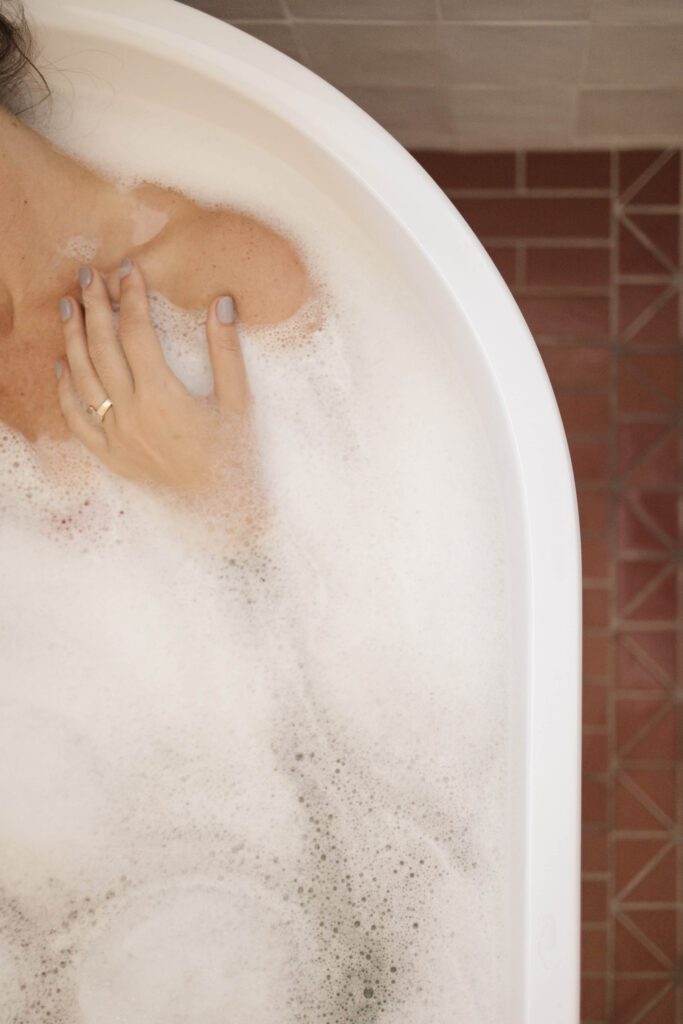
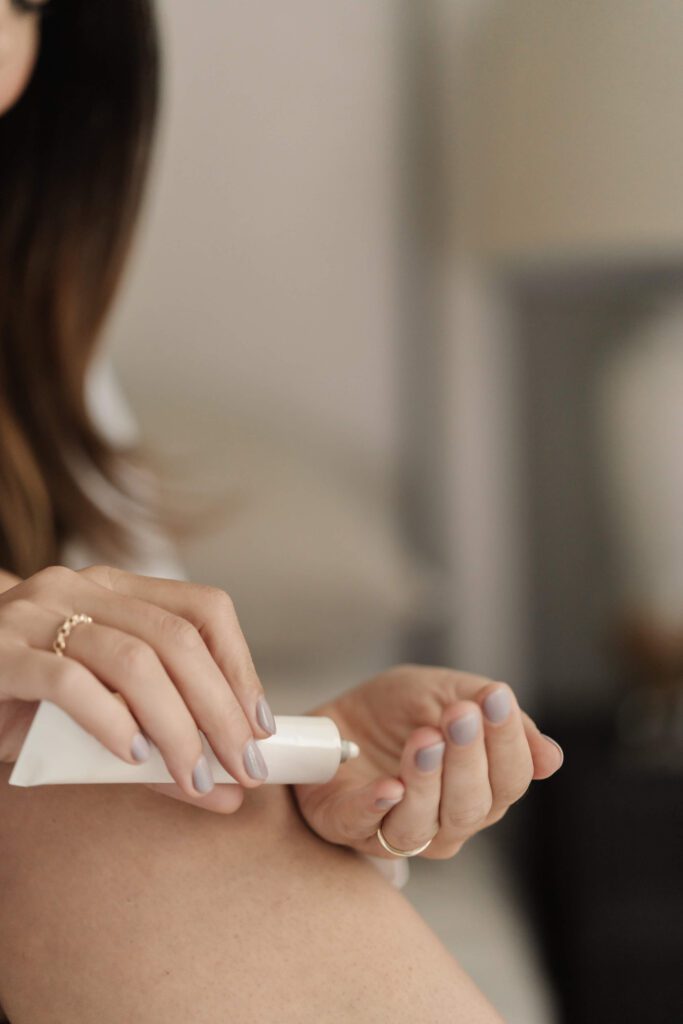
Choosing the Right Products
When you’re facing the discomfort of pimples on private parts, the first thing to scrutinise is the skincare products you’re currently using. It’s essential to opt for gentle soaps and fragrance-free lotions that are less likely to irritate sensitive areas. Moreover, consider your laundry detergent as it might contribute to skin troubles. Always choose hypoallergenic options that cater to sensitive skin, significantly reducing the chance of irritation or an allergic reaction.
Chemicals to Avoid
Your skin can absorb a variety of chemicals, which may eventually lead to skin issues or worsen existing conditions. Be wary of products containing alcohol, parabens, or synthetic fragrances as these can be harsh, particularly on sensitive areas. In relation to human papillomavirus (HPV) prevention, using latex condoms is recommended; however, if you have a latex allergy, look for alternatives to protect your skin’s health. Additionally, refrain from applying perfumes directly on or near sensitive spots, as these can trigger discomfort and are unnecessary chemical exposures for already troubled skin.
Lifestyle and Diet Considerations
Adopting a healthy lifestyle and making wise dietary choices can significantly influence the occurrence of pimples on private parts. These factors not only promote hormonal balance but are also pivotal in stress management.
Dietary Adjustments
Eating a balanced diet is critical for maintaining clear skin. You should include foods rich in zinc, such as pumpkin seeds, and omega-3 fatty acids found in fish like salmon, as they help reduce inflammation. Limiting sugar and dairy intake can also aid in hormonal balance, thereby potentially reducing acne flare-ups.
- Eat:
- leafy greens
- lean proteins
- complex carbohydrates like whole grains
- Avoid:
- processed foods
- high GI foods such as white bread and sugary snacks
Focusing on a diet with a low glycaemic load may also reduce symptoms, by helping to maintain steady blood sugar levels.
Physical Activity and Stress Management
Regular exercise not only helps keep your weight in check but also reduces stress, which is known to exacerbate acne. Aim for at least 30 minutes of moderate activity most days of the week.
Physical activity boosts circulation, which can help reduce the likelihood of pimples. It’s also beneficial for maintaining hormonal balance as it regulates hormones that can be factors in acne development.
Incorporating stress reduction techniques such as mindfulness, yoga, or meditation into your routine can further assist in leading a healthy lifestyle. These practices help manage stress, which is not only good for your mental health but can positively influence your skin’s condition.
Alternative and Complementary Therapies
In your search for solutions to pimples on your private areas, you might find comfort in knowing that alternative and complementary therapies can be gentle and effective. These natural approaches focus on the use of herbal remedies and other non-medical strategies that might help soothe your skin and reduce inflammation.
Herbal Remedies
Herbal remedies can be beneficial for managing various skin conditions, including pimples on private parts. Tea tree oil is one such essential oil known for its antiseptic and anti-inflammatory properties. A dab of diluted tea tree oil applied directly to the affected area can help in reducing redness and swelling. It’s crucial to dilute essential oils correctly to avoid any skin irritation.
Another option is aloe vera, which can be soothing and possesses antimicrobial effects. Apply fresh aloe vera gel to the area for a cooling sensation and to support healing. Remember, it’s important to patch test any herbal remedy on a small skin area first to ensure you don’t have an allergic reaction.
RELATED: Herbal Remedies For Vaginal Dryness: Natural Options For Relief
Other Non-Medical Approaches
Away from herbs, you could explore other non-medical approaches such as taking warm baths with Epsom salts. The Epsom salts can help to reduce soreness and inflammation. Soaking in a warm bath can also be a tranquil experience, providing both physical and mental relief.
Avoid the temptation to pick or squeeze pimples as this can lead to further irritation or potential infection. Keep the area clean and wear loose, breathable clothing to reduce moisture build-up. Maintaining good hygiene and a stress-reducing routine can also help manage and prevent future outbreaks.
By incorporating these alternative therapies into your skincare routine, you might find a natural and comforting way to manage your skin concerns.
Understanding Hair Removal and Its Effects
When considering hair removal from your private parts, it’s crucial to understand the potential for irritation and the development of ingrown hairs, which can lead to pimples or blocked hair follicles. Safe methods and gentle care are key to maintaining skin health in these sensitive areas.
Safe Shaving Techniques
Shaving is a common method for removing pubic hair, but it’s important that you do it the right way to minimise the risk of irritation and ingrown hairs. Here’s a straightforward guide to ensure you’re shaving safely:
- Preparation: Soften the area with warm water and use a gentle, unscented shaving gel. This will help reduce friction and prepare your skin for hair removal.
- Quality Razor: Use a sharp, clean razor every time. A dull blade can cause dragging and uneven cuts, leading to irritation.
- Technique: Shave in the direction of hair growth to reduce the chances of razor bumps and irritation. Avoid going over the same area multiple times.
- Aftercare: Rinse with cool water, pat dry, and apply an alcohol-free moisturiser to soothe the skin.
Hair Removal Alternatives
If you find shaving leads to discomfort or you’re looking for longer-lasting results, consider these alternatives:
- Waxing: This method can remove hair from the root, leading to a smoother finish and longer periods between treatments. Be sure to see a professional to reduce the risk of burns or ingrown hairs.
- Laser Hair Removal: A more permanent option, this technique uses light to target hair follicles. It requires multiple sessions, and it’s vital to choose a qualified practitioner to avoid skin damage.
Remember, whatever method you choose, always do a patch test to ensure your skin doesn’t react adversely, and follow up with proper skincare to keep your skin healthy and clear.
Tackling Hormonal Changes
When dealing with pimples on your private parts, understanding the impact of hormonal changes is key. These changes often occur during significant life stages, including puberty, pregnancy, and menopause, and can affect your skin health.
Navigating Puberty, Pregnancy, and Menopause
During puberty, your body experiences a surge in hormones, particularly androgens, which can increase oil production and lead to pimples on various parts of your body, including the private areas. It’s quite normal, and maintaining good hygiene alongside topical treatments can help manage breakouts.
Your skin might also change with pregnancy due to hormonal fluctuations, with some women experiencing clearer skin and others facing acne. Gentle cleansing and staying hydrated are your best bets for managing such pimples. Contraceptives can sometimes help regulate your skin’s condition by achieving hormonal balance, but it’s important to consult with your healthcare provider about what’s best for you.
As you approach menopause, lower levels of estrogen can affect your skin’s elasticity and moisture retention, potentially leading to acne. Lifestyle adjustments, like a diet rich in antioxidants and keeping stress in check, are practical ways to support your skin through these changes.
Medical Interventions
When lifestyle changes aren’t enough to tackle hormonal pimples, medical interventions might be necessary. Topical treatments, such as retinoids and benzoyl peroxide, are commonly recommended for treating acne. In some cases, oral medications, including hormonal contraception like the Pill, can restore hormonal balance and clear up skin issues.
Your doctor may consider prescribing medication like spironolactone, which has shown effectiveness in treating acne caused by hormonal fluctuations. Always seek professional advice before starting on any form of medication. Your doctor will guide you on the appropriate treatment path tailored to your unique needs and health profile.
Addressing Fears About Sexual Health
When it comes to sexual health, it’s perfectly normal to have concerns, especially if you’re experiencing issues like pimples in private areas. These can often be linked to hormonal changes but it’s essential to consider all aspects of your sexual health, including sexually transmitted infections (STIs) and the role of contraception.
Communicating With Partners
Discussing sexual health matters with your partners shouldn’t be daunting. It’s vital to be open about any symptoms you’re experiencing, like pimples, which could be related to hormonal changes or an STI. Remember, effective communication is a two-way street and can greatly reduce anxieties around sexual health.
- Tips for Communication:
- Be Honest: If you’re worried about pimples or any other symptoms, discuss these with your partner upfront.
- Educate Yourself: Knowledge about STIs and their impact can make these conversations more factual and less intimidating.
STI Prevention and Contraception
Protection against STIs is crucial. Consider various forms of contraception to safeguard your sexual health while also addressing concerns like unexpected hormonal changes.
- Contraception Options:
- Condoms: A reliable method to protect against STIs.
- Oral Contraceptives: These can regulate hormonal changes but remember they do not prevent STIs.
Keep in mind, while contraception can help with planning pregnancies and managing hormonal fluctuations, only barrier methods like condoms will protect you from most STIs. If you notice symptoms like genital pimples, it’s also important to see a healthcare provider to rule out STIs and get appropriate treatment.
Frequently Asked Questions
In this section, you’ll find clear and specific answers to your concerns about managing pimples in the intimate area with home remedies.
What are some effective home remedies for treating pimples in the intimate area?
To tackle pimples in this sensitive zone, you might consider natural anti-inflammatory options like tea tree oil. Just remember to dilute it with a carrier oil to avoid irritation.
How can one safely apply ointments to address pimples in the private parts?
When applying ointments, cleanliness is paramount. Wash your hands thoroughly and if the product allows, use a cotton swab to gently dab the ointment onto the affected area.
Which natural treatments are recommended for boils in the genital region?
Warm compresses are a go-to remedy as they can reduce pain and promote drainage. Natural ingredients like aloe vera gel are also known for their soothing properties.
What factors contribute to the formation of boils and pimples on private areas?
Friction from clothing and excessive moisture are common culprits. Hormonal changes or a weakened immune system may also play a role in their development.
Are there any specific creams suitable for vaginal pimples that can be made at home?
Homemade treatments, such as a mix of coconut oil with a few drops of lavender essential oil, can offer relief. However, ensure these mixtures do not disturb the delicate pH balance of the area.
How can I prevent the recurrence of pimples and boils in my private areas using home remedies?
Maintaining good hygiene and wearing breathable fabrics help greatly. Regularly changing out of sweaty clothes and considering a barrier cream may also reduce friction-related pimples.
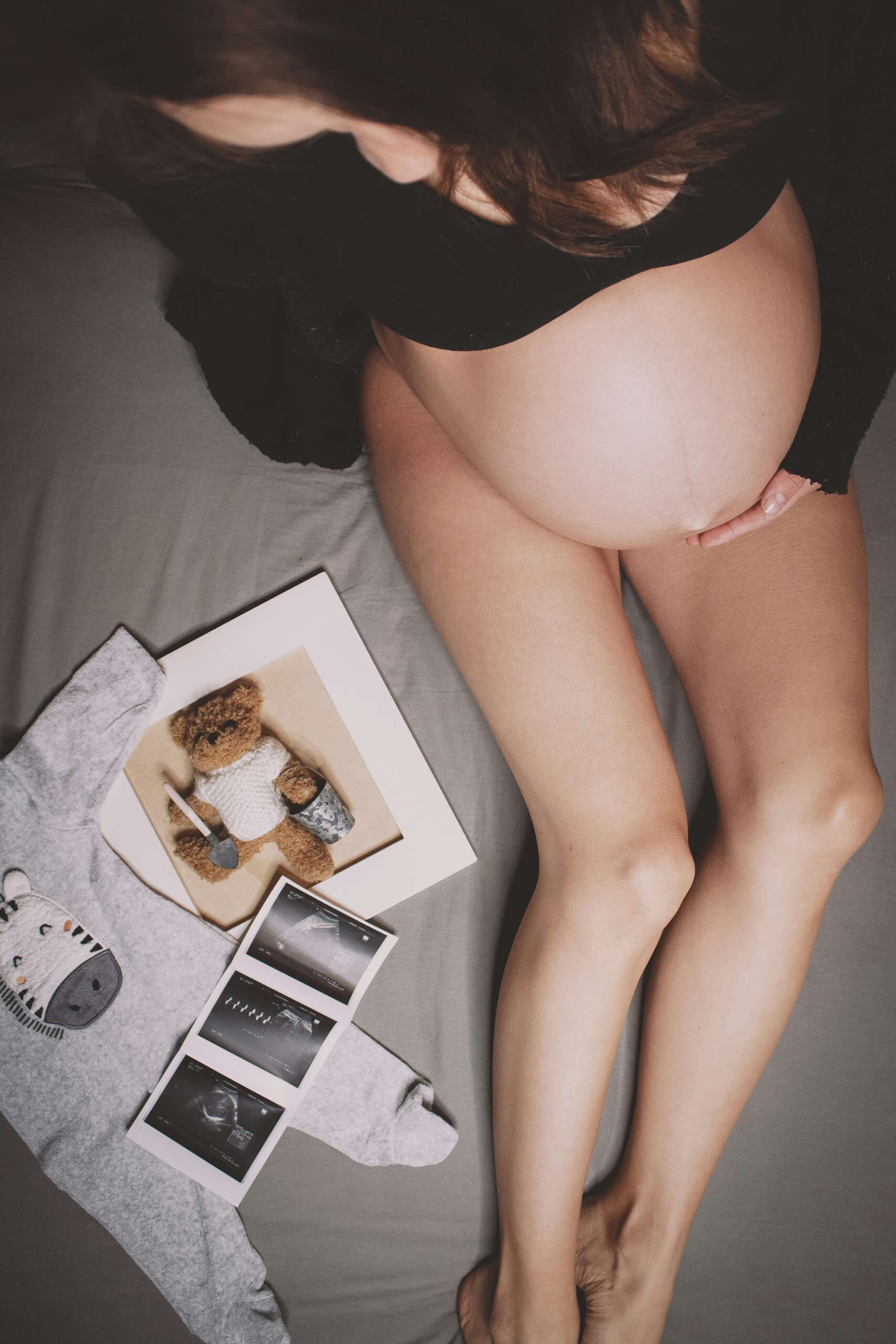
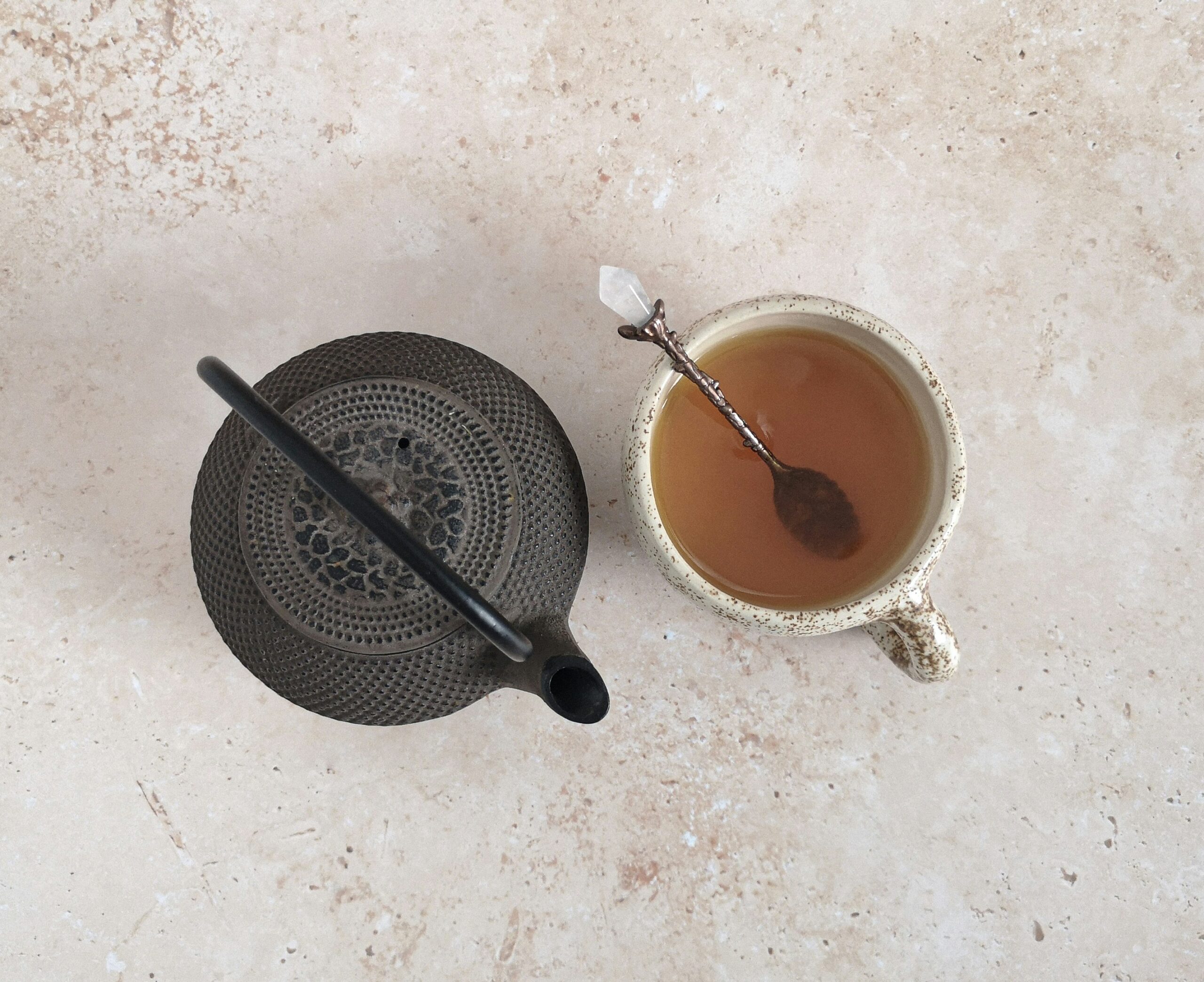

[Wow!!! I Got rid of Hsv-2]